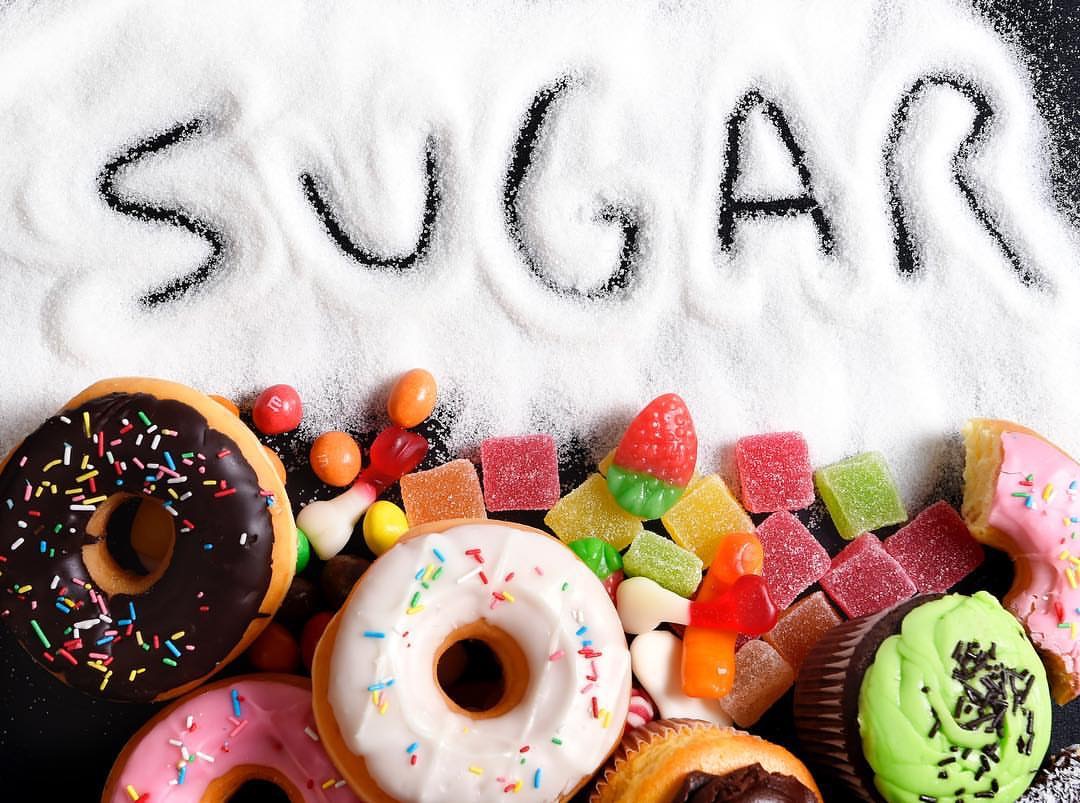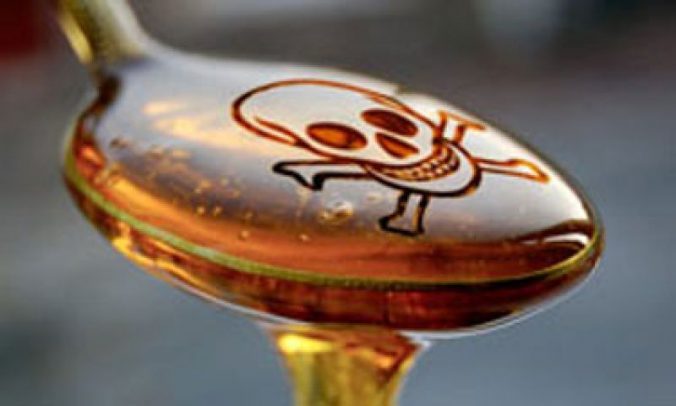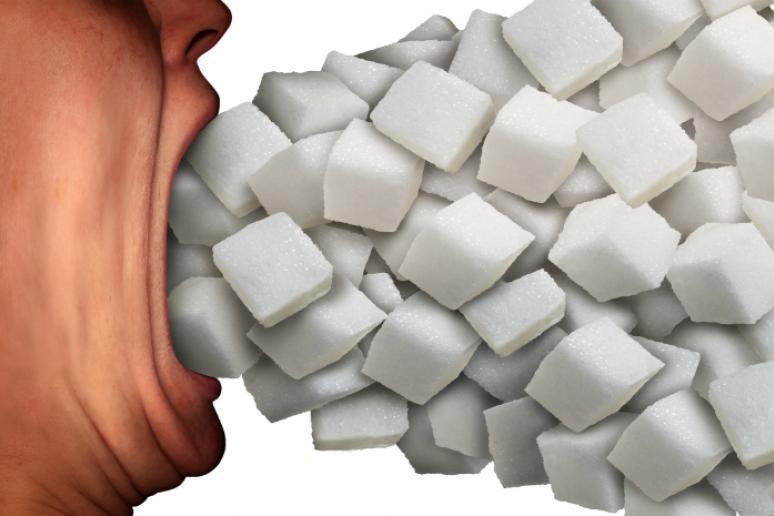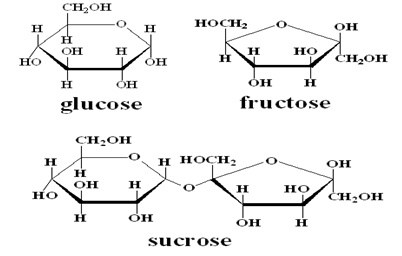
Addictive, scratch that, HIGHLY ADDICTIVE, highly debated, uncontrolled, and most believe it’s delicious! Yeah, I’m talking about Sugar. If you were to ask me what is responsible for our country’s expanding waistlines and rapidly deteriorating health, I would say sugar. Be warned here, sugar and sugar substitutes have wreaked havoc on our nation, and this is preventable and seriously sad.
So Chris, what is your solution to the sugar epidemic?
Eat less sugar if you want to live longer. End of discussion!
Just kidding, I have much more information for you guys!
Below are the top five questions I receive from clients regarding sugar:
-
Is sugar really that bad for you?
-
What about sugar in fruit, does this make fruit bad for you?
-
Are there good and bad sugars, is one better for you than the others?
-
Is sugar addiction a real thing?
-
Should I use natural sugars or sugar alternatives?
Let’s nerd out about sugar and learn what you can do to kick the sugar habit.
Nutrition is KEY!
The BIGGEST change that needs to happen if you are trying to lose weight and get healthy is your nutrition. Knowing you need to eat healthy and eat less sugar is not the issue – we need to adjust our nutrition so that we are not hooked on sugar, which is a major challenge for moat Americans. If you’ve tried quitting sugar in the past and failed, welcome to the club– many have tried and failed. Not necessarily because they are weak-willed, or too addicted to quit, but because they go about quitting the wrong way!
In addition to reading this article, SlicePT also offers PERSONALIZED ONLINE COACHING to help people kick the sugar habit and redirect their nutrition and fitness!
In case the article isn’t enough, feel free to Schedule a Call with Chris and have him personally speak to you about your nutrition in a way that helps you lose weight, feel healthier, and maintain your success without cutting calories and feeling miserable.
So, before we begin learning the ins-and-outs of sugar, let’s take a look at the role sugar plays in our current society.
1822: 45 grams of sugar consumed every five days
2012: 756 grams of sugar consumed every five days
Now, we have grown in population exponentially since 1822 increasing the needed demand for food, and the quick fix foods that have been created for convenience are normally loaded with sugar. Hence the reason we’ve “grown” as a country, because it’s not just the foods like candy, cakes and cookies– sugar has made its way into practically ALL FOODS we eat.
To put “icing on the cake” so to speak, the natural sugar isn’t the only sugar we should worry about. We now have artificial sugars that are worse on your health than any natural sugar.
Sugar is a carbohydrate (CHO).
Sugars end in “ose,” glucose, fructose, sucrose, etc.. Be warned, I’m about to drop some serious knowledge in this section.
There are many types of sugar: Simple sugars, or monosaccharides like glucose, fructose, and galactose. Also, there are complex sugars (disaccharides) like lactose, sucrose, and maltose.
Fact check on natural sugars:
- Glucose: Naturally found in plants and fruits. In plants glucose is created as a result of photosynthesis, in humans glucose is broken down during cellular respiration and is used for energy or is converted into glycogen. Humans can actually create glucose in a process called gluconeogenesis.
-
Fructose: Found in nature as a fruit sugar. This sugar is really, really sweet!
-
Sucrose: Naturally occurring in cane sugar, beet sugar, and some fruits and plants. Sucrose is a complex sugar unlike glucose and fructose, which are simple sugars.
-
Lactose: This is a complex milk sugar created by combining glucose and galactose. Most have the enzyme to digest this sugar (lactase), and those without this enzyme are lactose intolerant.
What are the main sources for sugar?
Sugar beets or sugar cane.
Farmers harvest, process, and refine the sugar in these plants and it eventually becomes the white sugar you’re so accustomed to seeing in stores. Keep in mind, this sugar has ZERO nutritional value: it is literally pure, refined sugar.
What Health Effects are Contributed to Sugar?
Along with aiding in weight gain, sugar consumption contributes to an increased chance of obesity, diabetes, cardiovascular disease, chronic kidney disease, dementia, renal failure, and high blood pressure.
If the above list does not make you want to give up sugar, I’m not sure what will.
Humans have TWO options for handling sugar::
-
Use sugar for energy.
-
Convert sugar to fat and store in adipose tissue (fat cells).
Ok, I now have sugar in my system, what’s next?
Your pancreas detects a rise in blood sugar and send out the troops, a hormone called insulin, to handle any excess sugar in the bloodstream. The insulin captures the sugar (glucose) and drags it into the muscle cells or liver where it is stored as glycogen for energy, or converted into triglycerides for storage in fat cells.
The Deadly Cycle…
Americans eat so much sugar that our bodies can’t seem to regulate the sugar properly and we then develop certain conditions as a result. When we eat a lot of sugar, and too much insulin is released, our blood sugar level can drop below normal levels. This is called hypoglycemia, basically a sugar crash. So what do we do? Cram sugar down our face and spike our sugar levels creating a cycle of highs and lows that eventually lead to disease.
The more often you consume sugar and spike your blood-sugar levels, the more intense the sugar spike becomes, the more insulin is required and eventually the body decides it’s easier to bypass using sugar as energy and simply stores the sugar as fat.
Should You Eat Less Sugar? Eating less sugar is a good start, but only a start! Humans process certain carbohydrates in much the same way we process pure sugar.
Have You Heard of the Glycemic Index? How about Glycemic Load?
The Glycemic Index is a scale used to calculate how fast a particular food will increase your blood sugar level. We use a 1-100 scale with 100 being pure glucose. Research into foods has shown that fries, white bread, and other (simple) carbohydrates have almost the same effect on our bodies as glucose. Basically, the more refined, or processed, the food, the quicker it is converted to sugar by your body.
Are you thinking to yourself, maybe fat isn’t making me gain as much weight as I originally thought– maybe the sugar and other sources of carbohydrates I eat are hindering my progress?
We now know the sources and effects of sugar, but the scary part is coming…
We all know companies create processed foods, but did you know the companies are also hiding sugars in their processed foods? Now, we have no clue the exact amount of sugar we are consuming, and that is terrifying my friend.
So, why do major companies hide sugar with other names? Nutrition labels are required by law to list their most prominent ingredients first. Therefore, these companies give the sugar three or four different names and list them throughout the food label to trick you into thinking the product has little sugar content. I feel this should be illegal, as the companies are misguiding individuals who care enough to actually read the labels in the first place! They will list one sugar near the top, then have sugar listed as a different name further down the list, sneaky!
Uh, is Fruit Sugar OK?
Fruit not only provides sugar, you also receive fiber, minerals, and other nutrients when consuming fruits. In the most basic sense, fruit generally causes less of a blood sugar spike than nutrient-void table sugar or, the devil, high fructose corn syrup.
TRAINER TIP: If your main goal is weight loss, consider vegetables over fruits.
Do You Like Fruit Juices? Not After Reading This!
To juice the fruit, you squeeze out the juice leaving behind the fiber and nutrients in the fruit.
For this reason, most fruit juices are simply sugary water. Most juices contain 20+ grams of sugar per serving.
Let’s compare a popular fruit juice to a cola:
Cola: ~40g sugar per 12oz can, one serving
Popular Fruit Juice: ~28g sugar per 8oz, two serving size bottle, we drink entire bottle normally, therefore we’re consuming 56g of sugar… hmm. Makes you think huh!?
What about sugar alternatives?
Companies are desperately trying to use labels that win over the health conscious consumer, and it’s really hurting the general population because they are fools by these terms, and by the fancy “organic” label on the bag/box.
Let’s delve into sugar alternatives and see what we can discover:
- Saccharin: This is an artificial sweetener from the 80’s. Much sweeter than table sugar and used in minute quantities by most. However, saccharin was linked to increased cancer in lab rats and thus labeled unsafe by the US and in 2000 the label was removed because the results from the rat study were not replicated in humans. Use at your own risk!
- Aspartame: Too varied results from studies on this stuff. I will tell you though, it’s man made and I stay as far away from this as possible. Diet sodas normally contain this sugar alternative, which is simply another reason against drinking soda!
- Agave Nectar: Oh boy. Probably the most deceiving of all substitutes. Agave comes from a cactus, which is natural, but is then severely processed in a very similar way as high-fructose corn syrup! Highly processed foods will end you!
- Honey: Improves blood lipid levels, lowers inflammation, and only slightly affects the blood-glucose levels. Not too shabby!
- Sucralose: Not to be confused with Sucrose (table sugar), this is a product your body can barely even break down! This sugar is 500-600 times SWEETER than Sucralose so that it can be consumed in smaller amounts, while yielding the same sweet effect as table sugar. You will find this in products such as powder drinks (protein shakes), sweetener packets like Splenda, and in many products claiming low carb/low fat content.
- Stevia: Derived from a plant in the sunflower family, this sweetener is roughly 250-300 times sweeter than table sugar. There’s a lot of controversy on stevia in the US, but it is accepted in a few Far East countries.

High Fructose Corn Syrup is OK, Right?
I literally could not be more disappointed than I am at the jerks that created this crap and began killing our children!
What is High Fructose Corn Syrup (HFCS):
Scientists discovered by processing and refining corn, the corn could be turned into an alternative for sugar, called high fructose corn syrup.
The producers of high fructose corn syrup and their associates (the foods who use HFCS in production) argue that it is no different on a molecular level from regular sugar, and that it is safe as a sugar substitute in drinks and foods. NO!!!! ABSOLUTELY NOT!!!
Studies have shown that rats fed the exact same meal plan, one group with table sugar, the other group with HFCS. The HFCS rats gained more weight and more fat weight in the abdomen region, even though they were on the same caloric intake as the first group with table sugar.
Chemically, table sugar is a different structural formula than HFCS– this has major significance. HFCS does not cause the digestive system to send the signals to your brain saying you are full and to stop eating, you’re satiated. Instead, you can eat, and eat, and eat until you explode with HFCS. Don’t believe me? How many times have you or a friend, a kid you know, whoever, binged on a box of cereal– eating the entire box at one sitting? This is due to the HFCS in the cereal failing to tell your body you’re full, plus the addictiveness of the sweet taste HFCS provides, double whammy!
Can You Become a Sugar Addict?
Sugar can be as addicting as some illegal drugs (and legal ones, ie. caffeine)
Humans (along with most mammals) did not have many sugary options thousands of year ago, therefore we ate less sugar. Also, we did not process foods as often as we are currently. When we eat something sweet it’s like a reward, something that we enjoy, and take pleasure from. Note, we are not genetically designed to consume the amount of sugar that we are currently eating. For that reason, our brains get that ‘feel good feeling’ from consuming sugar and that will typically override the “I’m full” response mechanism.
Sugar has a strange power over humans. We smell sweet and we can’t think of anything but that smell, and how we want to eat the delicious morsel creating that smell. With processed sugars in most foods, we will down an entire box of Oreos before we can blink, get the reward (sugar rush), and then crash like hell! If you make this a habit, eventually your brain will anticipate a sugar rush and prep for the onslaught of glucose– even if you’re only thinking about the sweet food!
Look at all the cookie stores and bakery places in malls, most are not in the food court… Why?
Away from the food court, the sweet businesses have a higher chance of you smelling THEIR product, which will trigger a sugar fan to want the product, even if they weren’t hungry before. Now this sweet taste is on your mind and you’ve forgotten why you were at the mall in the first place. Oh yeah, probably to buy 12 dozen cookies.
 HELP! How Do I Stop My Sugar Addiction?
HELP! How Do I Stop My Sugar Addiction?
Like with any addiction, there are two ways to quit:
Your personality and willpower will determine which route you take.
Here’s tips on how to Scale Down Addiction
-
Know your cravings, be hyper-aware of them!
-
Add an activity to distract you from thinking about sugar, because you may just be bored and not really craving/needing sugar.
-
Make some rules and stick to them! Today I will eat less than ___g of sugar. Start with 200 and go down from there. Ideally you want less than 40g per day!
-
Remove temptation, or at least make it harder to access.
-
Have a buddy system that can help you overcome cravings, don’t do it alone.
-
Try dark chocolate at 72% or greater, or fruit!
-
EXERCISE!
Be the person in control. Eat sugar because you want it occasionally, not because you need it daily. Giving up sugar and sugary products takes work, will not be a walk in the park, and will definitely challenge your mood, but you can do it!
Remember you want to be happier and healthier, and the journey to a happy healthy human cannot be completed without kicking the sugar addiction! It’s definitely easier said than done, but nothing in this world worth having comes easy, including a healthy lifestyle.
Trying to quit a substance that controls your brain is exceptionally difficult, especially without a proper support system and strategy in place!
If you want a trainer who will help you make better food choices, design a REALISTIC workout program that fits into your schedule, and gets to know you better than you know yourself, SlicePT is a good fit for you!
My Challenge to You:
- Decrease your sugar intake. Try to consume under 40g per day
- Start eating real foods and stay away from processed foods. Shop perimeter, not aisles.
- Cut back on junk food and soda. Buy something else with your hard-earned money!
Are you up to the challenge?
I’d love to hear about your personal relationship with sugar.
OK, if you have read this far down the article, thank you so very much and I hope I have helped you better understand sugar and it’s effects on the body. I want to share two ways you can get in-depth training, advice, and begin making fitness a priority.
- As I mentioned, the ONLINE COACHING PROGRAM where we take the guesswork out of nutrition, health, and fitness. You receive expert guidance from trainers who will hold you accountable for your health and fitness.
- Visit SLICEPT.COM and click the Member Log-in under “BECOME A MEMBER” to eitherlogin,or register to be a SlicePT member. 1,000+ SlicePT members have joined us in the movement to become healthier and happier, receive discounts on services, complimentary workouts, and other goodies from Chris!
- A third, NO COST option is to sign up for our mailing list. Again, cool emails packed with discounts, information, tips, tricks, and a lot more.
I want to sincerely thank you for taking the time to read my posts. I wish you the best, and I hope to hear from you soon! -Chris
“Limitations only exist if you let them.”



 HELP! How Do I Stop My Sugar Addiction?
HELP! How Do I Stop My Sugar Addiction?



